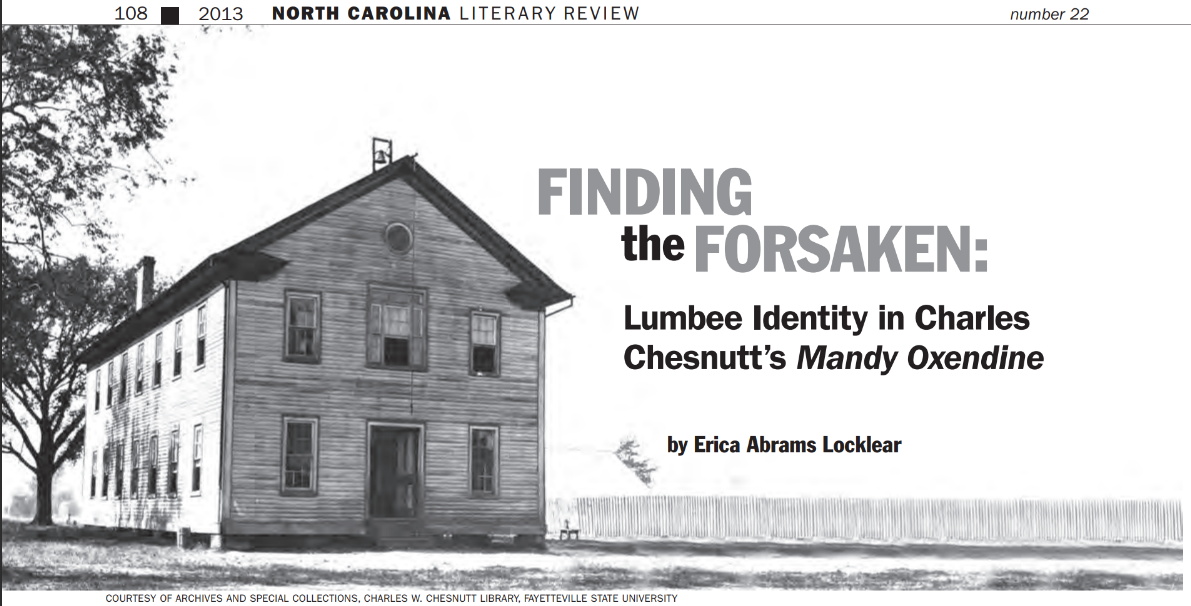Friday from the Archives: “Finding the Forsaken: Lumbee Identity in Charles Chesnutt’s Mandy Oxendine“ an essay by Erica Abrams Locklear from NCLR 22 (2013)
In this fascinating essay, Locklear delves into the contextual clues that Chesnutt’s characters in his posthumously published first novel Mandy Oxendine are, in fact, Lumbee, rather than the mix of white and African American Chesnutt claimed. Locklear writes: “At the time he was writing, Lumbee (then Croatan) Indians claimed Indian and white ancestry but vehemently denied any association with African American bloodlines, while Chesnutt was quick to assert that they were “mixed Indians and Negroes” and seemed suspicious of the claim that the group descended from the Lost Colony. When considered alongside the scholarship available on Chesnutt’s life and his writing, this passage represents a small but important piece of a larger critical analysis that examines Chesnutt’s work within a Lumbee context. Doing so allows us to interrogate why he simultaneously acknowledged and denied native identity in his work and why in large part, literary critics have ignored the native presence in Chesnutt’s work entirely.”
For those who are familiar with the Lumbee tribe and family surnames, no more context than “Oxendine” need be given. And Locklear does indeed point out the numerous surnames used, and the geographical area those surnames tend to be found and how it overlaps almost exactly with Chesnutt’s fictional work. She then makes the case from a place more personal to Chesnutt: “Even a brief consideration of Charles Chesnutt’s own ancestry reveals fascinating details that indicate that his writing about Native Americans may have been more personal than previously imagined.”
Locklear closes with “But after reading Mandy Oxendine within a Lumbee context, it becomes clear that instead, the problem for Chesnutt was – and the problem for current literary critics is – how to acknowledge the humanity of all people without denying or culturally erasing the constituent part that is African American or Native American.” The question continues to plague North Carolina, unfortunately.
Read the entire essay on ProQuest or purchase a copy of the 2013 issue.
